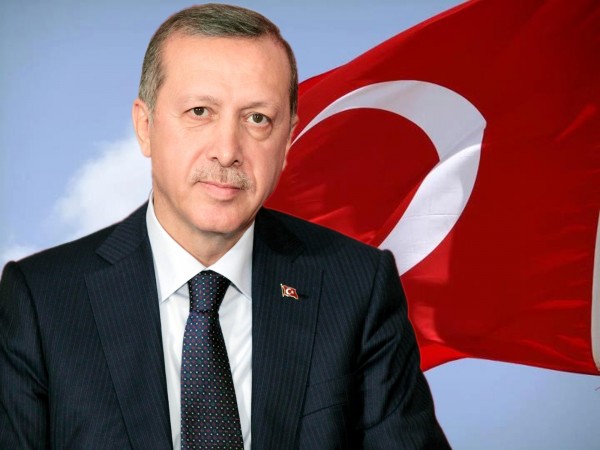Erdoğan due to visit three of Eastern African countries for different reasons

Analysts see Erdoğan’s trip to Africa as part of Turkey’s efforts to strengthen ties with Africa, which has been on the agenda of the ruling Justice and Development Party (AK Party) since 2002.
Turkey increased the number diplomatic missions on the continent to a total of 43 in 2014, up from 19 in 2002.
Furthermore, the trade volume between Turkey and the sub-Saharan African countries reached $7.5 billion in 2013, up from $742 million in 2000, according to data from the Foreign Affairs Ministry.
Mehmet Şahin, an academic from Gazi University’s international relations faculty, told Sunday’s Zaman that Africa has gained prominence in Turkey’s eyes in recent years due to the fact that unlike most countries, such as those in Europe, the African countries’ economies have been faring well in recent years in terms of economic growth.
He said Erdoğan’s visit will focus on economic ties with African countries.
“Turkey aims to expand its horizons in foreign relations by furthering ties with African countries, which, contrary to most countries, are doing well in terms of economic growth. Turkey is trying to find alternative partners in the area of foreign and economic relations,” said Şahin.
Erdoğan’s last visit to Africa was made on the occasion of the second Turkey-Africa Partnership Summit in Equatorial Guinea that took place last November.
In his speech at the summit, Erdoğan underlined that Turkish-African relations have flourished since 2002.
“In the last 10 years, the trade volume with sub-Saharan African countries increased tenfold. The value of Turkish investments in Africa totals $6 billion. Turkish Airlines [THY] now has flights to 40 African cities,” said Erdoğan.
Noting that between 1991 and 2013 Turkey allocated 3,254 fellowships to African students who were then educated in Turkish universities, Erdoğan further added that Turkey will grant $5 million to African states in their fight against Ebola, which has led to the deaths of 8,153 people in West Africa.
Despite the positive statements by the president, Turkish-African relations have lost momentum in the last two years, particularly in the area of bilateral trade volume, which has fallen short of official targets.
“The trade volume between Turkey and Africa has remained below target since 2012. At the current pace, Turkey’s 2015 and 2023 targets for trade with Africa seem unattainable,” said Ufuk Tepebaş, a former chairman of the Turkish-Asian Center for Strategic Studies (TASAM) and an independent analyst on Africa, to Sunday’s Zaman.
Pointing out the inadequate measures Turkey has taken to boost trade with Africa, Tepebaş said: “Turkey needs to take steps in terms of removing obstacles to the growth of bilateral trade. … Turkey has a free trade agreement with only four African states, in addition to having double taxation deals with seven African countries.”
Commenting on Erdoğan’s visit, Tepebaş stressed that Ethiopia and Tanzania hold a particular importance for Turkey as they were among the top 10 countries in terms of gross domestic product (GDP) growth last year.
“The success of Erdoğan’s visit to Ethiopia and Tanzania will depend on whether Turkish businessmen can make important deals with their African counterparts. The pace that has been lost with African countries could be made up for through these visits,” said Tepebaş.
Tepebaş also noted that Erdoğan’s visit to Somalia has a rather political and symbolic value as the country does not have economic potential and is plagued by fighting gruops. He said by visiting Somalia, Erdoğan aims to build an image of Turkey as a friendly country to Somalia and as well as other African states.
Turkey has recently lost an important instrument of soft power in Africa, as the Turkish government has targeted Turkish schools abroad, including those on the African continent, that are affiliated with the Hizmet movement, which is inspired by the teachings of Islamic scholar Fethullah Gülen. A charity group that is affiliated with the movement, Kimse Yok Mu, is also active on the continent.
In May of last year then-Foreign Minister Ahmet Davutoğlu sent orders to Turkish embassies to take steps toward the closure of Turkish schools, which had been widely applauded for their high quality of education and their contribution to Turkey’s global reputation.
The government adopted a critical stance against the Hizmet movement after a graft investigation that became public in 2013 and implicated four ministers, pro-government businessmen and Erdoğan’s son Bilal Erdoğan.
The government, which was headed by then-Prime Minister Erdoğan at the time, interfered with the investigation and reassigned prosecutors and police officers who conducted the probe to different posts in order to change the outcome of the judicial process.
In addition, Erdoğan called the investigation a plot, and the Hizmet movement was portrayed by him as being behind the investigation.
Source: Sunday’s Zaman